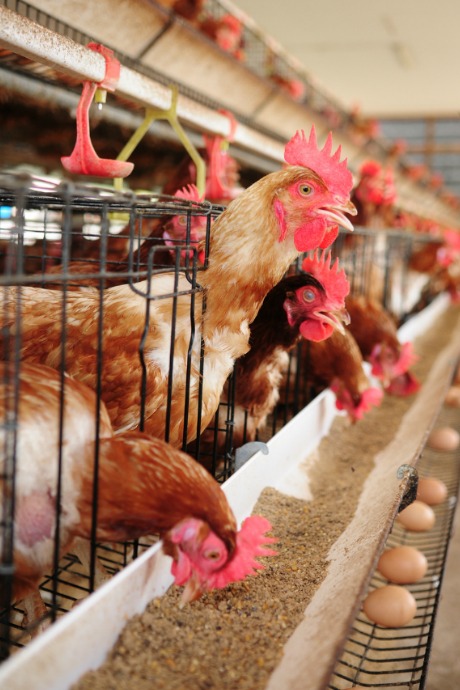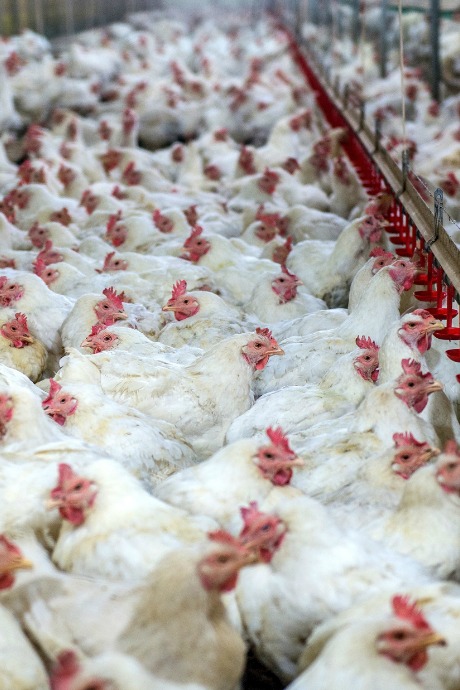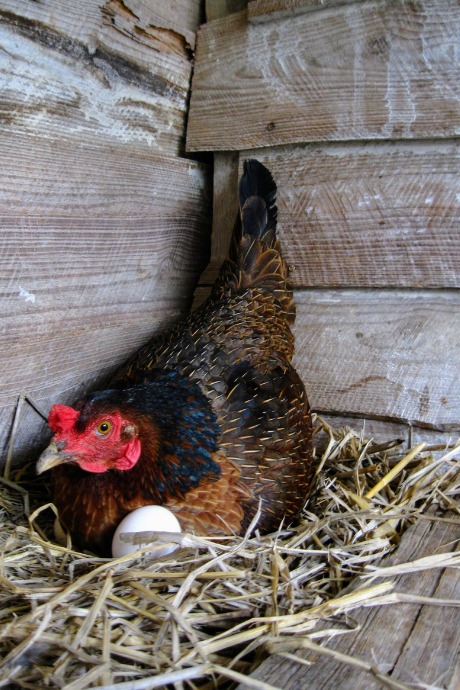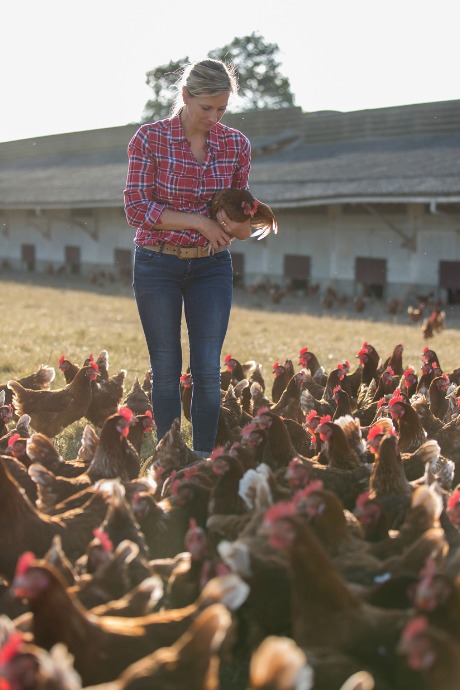Chicken Eggs: Demystifying the Labels
Posted by April on Aug 27th 2018
When you visit the dairy case in your grocery store, the labels on the egg cartons may leave you scratching your head. Which kind of eggs are going to taste the best? Is there a nutritional difference among the kinds of eggs you can buy? What does cage-free mean, and are cage-free eggs worth the additional cost? Does buying organic eggs really make a difference? If you’ve been wondering about the differences between the kinds of chicken eggs available at the grocery, read on.
Farm Fresh
The phrase "farm fresh" conjures up images of happy hens clucking contentedly, scratching through the dust and pecking at bugs. Despite the rural connotations, descriptions like “farm fresh” and “all natural” actually mean very little. These claims are not monitored by the government. They are simply marketing ploys.
Why do egg producers do this? The truth is that phrases like “farm fresh” sound much more appealing than “battery hen.” Hens who produce eggs on a conventional chicken farm live in small cages called batteries. The hens are locked in cages, one hen per cage, and spend their lives eating, drinking, and laying eggs. They don’t experience sunshine, fresh air, or pecking at bugs. This is the cheapest way to produce eggs, so these eggs are the least expensive.

Battery hens are fed the cheapest feed, which is mostly a blend of conventionally-raised corn and soybeans, with added vitamins and minerals. Sometimes, byproducts of animal slaughter are added to the feed.
Cage-Free
Cage-free sounds better than battery hens, but is it really? Cage-free hens are slightly better off than their caged counterparts, but only a little. Cage-free hens are not cooped up in batteries, but they don’t get access to fresh air and sunshine. Farmers pack thousands of birds in each chicken house.

The hens do get to walk around and stretch out a bit, but conditions are still somewhat cramped. Outdoor access is not required for producers to use the label “cage-free.” Cage-free hens typically also get the same feed that traditional battery hens receive. They lay their eggs in nest boxes and may have access to roosts where they can perch, something all hens like to do.
Free Range
To be able to use the label "free range," producers must be able to demonstrate to USDA officials that the hens are given some access to the outdoors. However, producers do not have to follow any sort of guidelines regarding the amount of outdoor time the hens experience. For example, free range hens could be given access for an hour a day, or an hour a week. But there’s no way to know how much time the hens have actually spent outside, or what they have been fed.
Organic
Organic is one label that is closely monitored by the USDA. You can be confident that producers of organic eggs have followed rigorous guidelines to obtain and maintain their organic certification. To be a certified organic producer, chicken farmers must use feed that is free from pesticides, herbicides, and petroleum-based fertilizers. Also, hens on organic farms must have some access to the outdoors. Again, however, there is no standard for how much outdoor access producers must provide.
Vegetarian-Fed
Feeding hens a vegetarian diet is also something of a marketing ploy. Hens are birds, and birds are omnivores. It’s natural for a chicken to consume bugs, worms, and even small frogs and lizards. Vegetarian-fed chickens will not be fed byproducts of animal slaughter, something that makes many people cringe. But the reality is chickens need certain amino acids that only can be found in other animals. Chickens need meat (or bugs and worms) to stay healthy and strong. Hens fed a truly vegetarian diet will get sick and die before their natural lifespan ends.
Hormone-Free
The label “hormone-free” means absolutely nothing. Feeding chickens hormones is absolutely forbidden in the United States, so this label is simply another marketing ploy.
Certified Humane
This label is not regulated by the government, but an outside agency, Humane Farm Animal Care, monitors the farms who use the label “certified humane.” The hens with this label must have a minimum amount of space to roam around, they must be cage-free, and be provided with nest boxes in which to lay eggs.

Pasture Raised Eggs
Probably the best-tasting, most nutritious eggs are “pasture raised.” Pastured hens spend as much time as possible in the outdoors. They are housed directly on grassy fields and are able to scratch and peck at bugs and grubs as much as they like. The hens have a grain supplement to guarantee their laying, but they can live life like chickens were meant to live. Of course, you should be aware that the phrase “pasture raised” is not regulated by the USDA. But if you couple it with "certified humane," you have a pretty good chance that your eggs were laid by happy, healthy, hens.

The best place to find pasture raised eggs is at your local farmer’s market. Talk to the vendor and ask about their farms and their hens. Most farmers love talking about how they produce food products, and they love it when people want to know more about what they do.
Brown or White Eggs?
The only difference between brown eggs and white eggs is the pigment of the shell. Different breeds of chickens lay different colors of eggs. There are even some hens that lay blue eggs. The taste of the eggs depends on the hens' diet, not the color of the shell.
Nutrition and Flavor
The most nutritious eggs come from chickens that eat a wide variety of foods. Most producers of pasture raised eggs feed their hens grain and table scraps, and allow the chickens to consume whatever insects, grubs or seeds that the birds come across in their foraging. In return, the hens lay healthier, tastier eggs with brilliant orange-yellow yolks.
Some studies have shown that pasture raised eggs have greater amounts of Vitamins A, D, and E than traditionally produced eggs, and they also contain greater amounts of Omega 3 fatty acids that can benefit your health.
The next best egg you can buy for your health is an “Omega 3 enriched” egg. The hens that produce these eggs are fed extra Omega 3-containing grains like flaxseed. The eggs produced contain much more Omega 3 fatty acids than conventionally-produced eggs.
As an avid farmer, gardener, and cook, April Freeman is an expert in the food production process. She raises pigs, chickens, beef cattle, and grows a wide variety of vegetables and fruits on her family farm in Tennessee. Learn more about April’s firsthand experience with farm-fresh food on her blog, Feeding My Family.
 Free shipping over $49
Free shipping over $49










